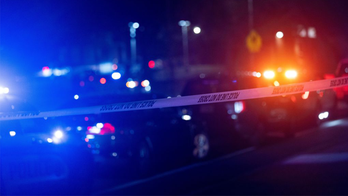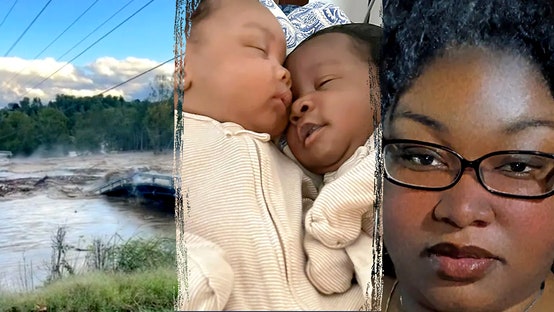Columbia University Grapples with Ongoing Anti-Israel Demonstrations and Campus Tensions
- September 9, 2024 04:03pm
- 195
Amid persistent anti-Israel protests and concerns about free expression, Columbia University is implementing new measures to address campus tensions. Interim president Katrina Armstrong emphasizes balancing free speech with a safe and inclusive environment.
Columbia University's campus remains a focal point of anti-Israel demonstrations, prompting concerns about safety and free expression.
On the first day of the new semester, protestors gathered outside the gates, leading to at least two arrests. The police described the demonstrations as "peaceful," but tensions have been escalating since last October's Hamas attack on Israel.

Columbia University Grapples with Ongoing Anti-Israel Demonstrations and Campus Tensions
William Jacobson, president of the Legal Insurrection Foundation, predicts an intensification of protests as the anniversary of the attack approaches on October 7. He describes the campus situation as a "cult" that is "dangerous and difficult."
Columbia's former president, Nemat Shafik, resigned last month after her handling of protesters resulted in arrests and a toll on her family. Interim president Katrina Armstrong now oversees campus order.

Columbia University Grapples with Ongoing Anti-Israel Demonstrations and Campus Tensions
To manage tensions, new restrictions have been imposed, including a ban on camping, stricter access controls, and movable fences to cordon off areas. The university's code of conduct has also been updated.
Despite these measures, Columbia ranks second to last in the Foundation of Individual Rights and Expression's College Free Speech Rankings. Campus surveys indicate a disproportionate number of liberal students and a high rate of self-censorship.

Columbia University Grapples with Ongoing Anti-Israel Demonstrations and Campus Tensions
Jewish and Israeli students have reported incidents of harassment, including being targeted by a "doxxing truck" with their photos and names displayed as "Antisemites of the Week." They also express concerns about biased curriculum and a perceived lack of support for their perspectives.
Jacobson believes that faculty play a significant role in fostering protest culture, using their platforms for activism rather than promoting critical thinking.

Columbia University Grapples with Ongoing Anti-Israel Demonstrations and Campus Tensions
Columbia's Antisemitism Task Force released a report documenting 91 pages of student complaints of hostility based on Jewish faith, including incidents of spitting, name-calling, and accusations of genocide support.
Despite the university's emphasis on free speech and inclusivity, Jacobson notes that there is a correlation between high levels of activism and suppressed free expression. He suggests that protests are intended to silence debate rather than engage in it.

Columbia University Grapples with Ongoing Anti-Israel Demonstrations and Campus Tensions
Interim president Armstrong acknowledges the need for a balance between free speech and a harassment-free environment. She reiterates the importance of everyone feeling included and respected, while ensuring the university's mission of open debate and learning.
The ongoing tensions on Columbia's campus highlight the challenges of navigating freedom of expression while maintaining a safe and welcoming environment for all students.
Related articles
-
 Dozens of Illegal Immigrants from Terror-Linked Countries Apprehended at Texas-Mexico Border
Authorities in Texas have detained dozens of illegal immigrants from nations linked to significant terrorist activity, including Afghanistan,...
Dozens of Illegal Immigrants from Terror-Linked Countries Apprehended at Texas-Mexico Border
Authorities in Texas have detained dozens of illegal immigrants from nations linked to significant terrorist activity, including Afghanistan,...
- 05 Oct 2024
-
 Diddy Accused of Sexual Assault by Over 100 Victims, with Allegations Involving a 9-Year-Old
Sean "Diddy" Combs faces mounting allegations of sexual abuse from over 100 potential victims, represented by Texas attorney Tony Buzbee. The...
Diddy Accused of Sexual Assault by Over 100 Victims, with Allegations Involving a 9-Year-Old
Sean "Diddy" Combs faces mounting allegations of sexual abuse from over 100 potential victims, represented by Texas attorney Tony Buzbee. The...
- 05 Oct 2024
-
 Rachel Morin's Mother Testifies Before Congress, Slams Biden-Harris Immigration Policies
Patty Morin, whose daughter was murdered by an illegal immigrant, implored lawmakers to secure the border, citing the preventable tragedy that...
Rachel Morin's Mother Testifies Before Congress, Slams Biden-Harris Immigration Policies
Patty Morin, whose daughter was murdered by an illegal immigrant, implored lawmakers to secure the border, citing the preventable tragedy that...
- 05 Oct 2024
-
 Ohio Woman's Buried Rug Mystery: Police Investigation Uncovers Surprising Twist
A viral TikTok sensation sparked a police investigation in Ohio after a woman discovered a buried rug in her yard. The alarming discovery, shared in...
Ohio Woman's Buried Rug Mystery: Police Investigation Uncovers Surprising Twist
A viral TikTok sensation sparked a police investigation in Ohio after a woman discovered a buried rug in her yard. The alarming discovery, shared in...
- 05 Oct 2024
-
 Tragic Loss: Georgia Mother and Twin Newborns Killed in Hurricane Helene
A Georgia woman and her twin newborn sons tragically lost their lives during Hurricane Helene when a tree fell on the trailer where they were taking...
Tragic Loss: Georgia Mother and Twin Newborns Killed in Hurricane Helene
A Georgia woman and her twin newborn sons tragically lost their lives during Hurricane Helene when a tree fell on the trailer where they were taking...
- 05 Oct 2024
-
 Hurricane Helene's Devastation: North Carolina Pastor Vows to 'Bring Hope in the Middle of This Brokenness'
As Rutherford County, North Carolina, contends with the widespread damage caused by Hurricane Helene, Pastor Seth Norris of Perkinsville Church is...
Hurricane Helene's Devastation: North Carolina Pastor Vows to 'Bring Hope in the Middle of This Brokenness'
As Rutherford County, North Carolina, contends with the widespread damage caused by Hurricane Helene, Pastor Seth Norris of Perkinsville Church is...
- 05 Oct 2024

Leave a comment
Your comment is awaiting moderation. We save your draft here
0 Comments
Chưa có bình luận nào